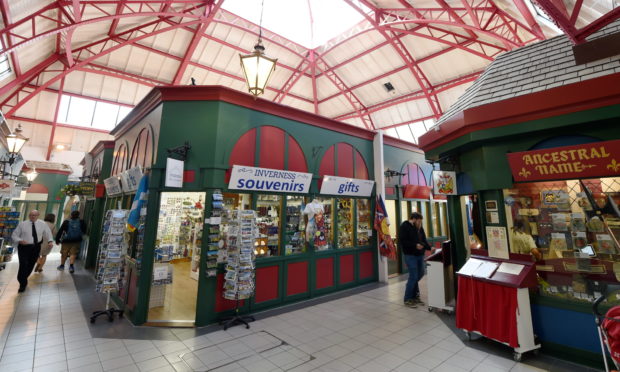Controversial plans for a complete makeover of the back hall in Inverness’ Victorian Market have been given listed building consent by Highland Council planners under delegated powers.
The decision has been greeted with dismay by at least one councillor who said it should not have been “kept quiet and slipped through” amidst lockdown.
Ron MacWilliam said it ought to have been deferred to allow for proper scrutiny – not least in light of the sensitive nature of the development.
The £1.5 million project, funded by Inverness Common Good Fund and managed by the council, caused a storm of protest in March when developers unveiled the designs.
They involved the displacement of a group of 14 traders in the centre, with their small shops in the middle of the hall dismissed as ‘clutter’.
Removing them will open up new views of the roof and create more circulating space, say designers 360Architecture.
Traders were given notice and forced to move out, accusing the council of ‘killing our dreams’ as they did so.
The designers, meanwhile, have promised full accessibility, improved toilet facilities, a mixed range of units around the sides and the preservation of heritage features.
New units, mainly small and ‘kiosk-sized’, are to be simple structures in timber and steel, with zones for counters or seating.
The main addition to the space will be an open steel pergola-style structure surrounding the seating area in the centre.
The roof – which has recently been refurbished – is to be left largely untouched, though decorative lighting will run along the roof trusses.
While in agreement with the need to revitalise the back hall, councillor MacWilliam has been a long-standing critic of the development process.
He said that in light of the potential impact of pandemic, the application should have been deferred for future discussion.
“It is an incredible situation that a planning application so controversial has been kept quiet and slipped through on the nod in the midst of a pandemic,” Mr MacWilliam said.
“The implications for business, retail and transport as a result of the pandemic are significant.
“The market could well become a centre for locally produced food, as it once was, but the design and expenditure commitments from the Inverness Common Good Fund are no longer applicable to the original proposal.
“This needs to be looked at with a fresh set of eyes and any investment must be informed by a new vision for the town centre, post-pandemic.”
Highland Council said one third party response was received for the application, from the Inverness Civic Trust, giving support for the proposal.
A council spokeswoman said the application had been advertised publicly for a month.
“The listed building consent was issued under delegated powers through the council’s scheme of delegation,” she said.
“There would be no reason to determine the application any other way.”
